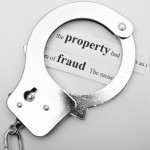 Fraud of all types is a serious problem in our complex, online lives. And if you’re a landlord, particularly if you’re based overseas and own a property in the UK that you don’t personally live in, you need to guard against an increasingly common problem – fraudulent property transfers.
Fraud of all types is a serious problem in our complex, online lives. And if you’re a landlord, particularly if you’re based overseas and own a property in the UK that you don’t personally live in, you need to guard against an increasingly common problem – fraudulent property transfers.
The criminal will transfer a property into their own name with the Land Registry, obtain a mortgage against the property and then, once they have the money, disappear with the cash, defaulting on the mortgage and leaving the real owner to pick up the pieces – and pay the bill.
Barclays Bank plc v Guy 2008
This is what took took place in the case of Barclays Bank plc v Guy 2008. Mr Guy discovered a fraud on his property and applied to the Court to correct his details with the Land Registry to show that he was the true owner of the property. He was allowed to do this but was unable to have the mortgage charge removed.
The Court decided that the mortgage should remain valid and therefore the mortgage company was allowed to seek an order for the sale of the property to recover the amount it had lent against it to the fraudster if repayments weren’t made.
How can this happen?
This seems as though it can’t possibly be right. But it is. The Court referred to Section 58 of the Land Registration Act 2002 which states that a person being listed as the proprietor of a legal estate with the Land Registry is conclusive evidence of ownership. As a result, the transfer into the fraudster’s name was an error and could be put right but the mortgage charge was not a mistake as the mortgage company should be able to assume information from the Land Registry is correct, to prove ownership. Therefore, the mortgage charge could not be rectified.
How can you protect against fraudulent property transfers?
If you own a property but do not actually live there, you should update your details with the Land Registry, adding your actual address for correspondence. This is free to do – you just have to fill in a form and send it to the Land Registry with some identification. So it’s very simple and ensures complete peace of mind. As always in lettings, better safe than sorry.
International offices















